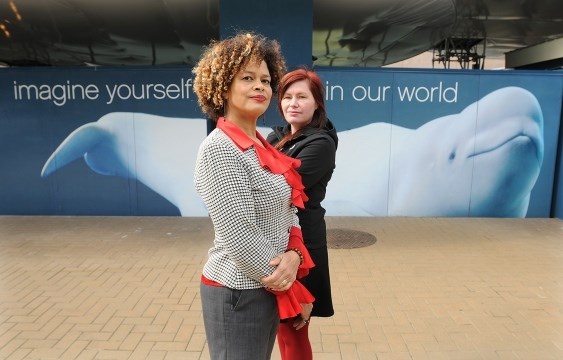To the editor:
Re: “Vision commissioners call for end of whale captivity at aquarium,” April 4.
I’m wondering about the “blind spot” which Paul Spong referred to regarding the Vancouver Aquarium’s desire of keeping captive cetaceans. Besides the “tired old argument,” could their reasoning also be related to a financial concern? Usually, when a business baulks at changes, even with a major public opposition, it is related to a fear of losing money.
Maybe I’m wrong, but I would guess that without this attraction (whales and dolphins) to lure paying customers to visit the facility, a major drop in funds might be the result. And along with that drop, all the wonderful things that the aquarium can do — like funding research, education, rehabilitation, and conservation — will simply disappear, because they can’t afford it. And eventually, it will have to close its doors completely.
Can the aquarium’s business thrive without the captivity of these big mammals to put on a show for a paying audience? If not, I’m sure that the aquarium needs another money-earning option for self-survival and until they have one, this known success is going to be clung to.
Here’s an idea, which maybe has already been suggested. Instead of keeping whales and dolphins on display in captivity, or having them perform human-taught tricks in concrete bathtubs for audiences, have a theatre! lt could be like what Canada Place had with its FlyOver Canada presentation (only better) with stunning film footage of whales and dolphins performing in their natural habitat. Show these films in natural life-size scale, maybe in 3D or IMAX surround.
The public will have a sense of participating in a fantastic virtual experience, above and below the water. Maybe seats can rock and roll at times, to simulate riding in a boat. Computerized special effects could also be used to enhance this simulated adventure. To be sure, the Vancouver film industry can provide much local expertise in this kind of technology.
Maybe plans can be revised to improve existing tanks, to be used for rescuing and rehabilitating these magnificent mammals when necessary.
They could still be on display, not for audience entertainment purposes, but for education. This way, in my opinion, greater teaching would be provided on how to treat animals and, hopefully, greater compassion would be instilled for our fellow creatures and their environment.
Frances Dietz,
Vancouver



